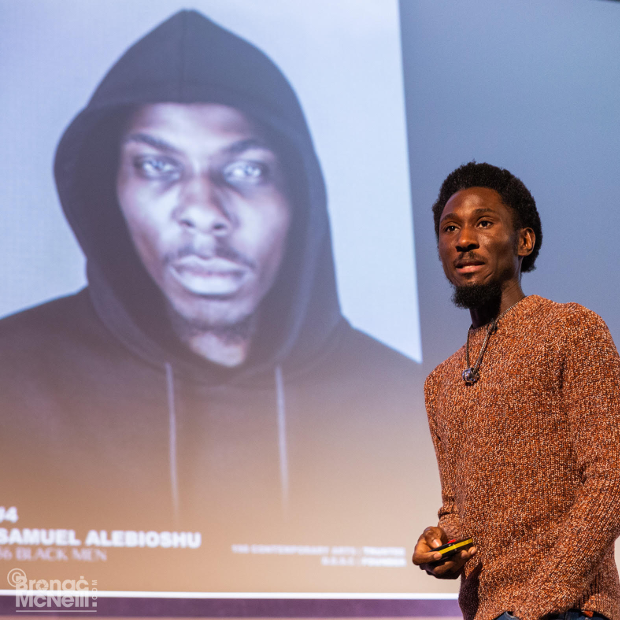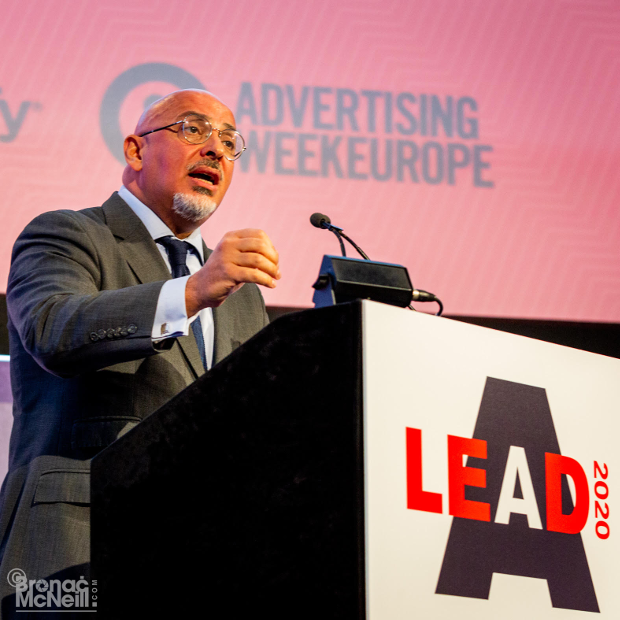
What Does Responsible Advertising Look Like?

The seemingly radical idea that advertising bears responsibility and should behave accordingly isn’t new, but it’s one that feels more vital than ever. That’s why the Advertising Association has chosen it as their theme for 2020, unveiled this morning at the LEAD 2020 conference in London.
According to Stephen Woodford, chief executive of the AA, the decision to proactively encourage the industry to act with a greater sense of responsibility follows on from last year, when the problem of declining trust in the industry was the AA’s central issue.
“These things are long term, trust has been in decline for a long time we’re not going to turn it around in a year or five years. It’s a long haul. This is building on that. We’ve got a passionate president in Keith Weed talking about the progress,” says Stephen. “It’s a very exciting time and we thought with the new decade as well it would be a good time to say let’s do more. Let’s not do this incrementally.”
Responsibility covers a range of issues, as is evidenced both in the LEAD 2020 conference content and also with the news that the AA have launched two action groups around climate change. The conference covered sustainability, diversity and inclusion, privacy and data, and the social and emotional impact of the content it puts out in the world.
In terms of the desire to bring the industry together to address the environmental crisis, Stephen said that the Advertising Association was following the lead of grassroots initiatives from across advertising and production.
“I think probably because advertising is very close to the media, to society and culture and is at the interface between society and business and the environment, the sensitivities are even more heightened in a business like ours,” says Stephen. “It reflects very well that this was happening at a grassroots level. We were trying to build on that and algn as many interests as possible to get behind some big programmes that really do change things.”
While the issues of sustainability and environmental impact are particularly challenging for big brands seeking to improve their supply chains, manufacturing, workplace practices and marketing, Stephen said that it’s considered an urgent priority for most businesses he speaks to. “We’ve not had a single contrary voice anywhere and actually since the release has gone out, we’ve had a lot of people saying how can we help. It’s tapped a real zeitgeist,” he says.
With changing attitudes and growing awareness across society on the environment as well as other issues, addressing the environmental impact of business is not just a moral issue, it’s a commercial imperative. Speaking at LEAD 2020 Carolyn McCall DBE, chief executive at ITV points out: “I think a lot of people focus on millennials when they think about advertising and responsibility and I think that’s not quite right. I think millennials are more acutely aware of sustainability in terms of where they buy products… but actually I think it’s right across the board. I think people have become more aware of their own impact on the environment, their own impact on society that it’s actually much more broadly felt.”

Cephas Williams
Diversity and inclusion is another area where the industry needs to take more responsibility. Cephas Williams, founder of 56 Black Men, a creative project aimed at dismantling negative stereotypes about young black men in the media spoke passionately about how media misrepresentation has a real and damaging impact.
Again, there’s a commercial driver too, as MP Nadhim Zahawi of the Department of Business, Energy and Industrial Strategy points out. As the UK looks beyond the boundaries of the EU to form trade links and deals, it needs to become even more diverse and dynamic and welcoming of other nationalities and cultures. “Your industry could do better by sharpening focus on diversity and inclusivity,” he says.

Nadhim Zahawi
At LEAD 2020, Credos launched research about the public attitude towards advertising’s social contribution (read more of that here). And, interestingly, the move to more diverse and contemporary representation of Britain in advertising is seen as a positive thing by the public. “This is clearly a massive issue on top of all the additional things that we would put under this responsibility agenda. Diversity and inclusion, advertising playing a positive role in society. You’ll see in the report that advertising’s emotional contribution is very much appreciated by society so we’ll see more of that, it improves trust in advertising,” says Stephen. “There are cynics who would say his is about advertising becoming more ‘woke’. It’s not that at all. It’s reflecting what life is like and celebrating what modern life is like.”
While diversity both onscreen and off, and the environmental impact of brands and advertising are highly emotive topics, the industry also has to face up to its responsibilities on drier topics like privacy, data and brand safety.
That’s something that Ronan Harris, VP and MD UK & Ireland for Google and Facebook’s EMEA VP Nicola Mendelsohn have been reflecting on following scandals that have thrust both companies into the spotlight in recent years.
“It’s been quite a journey... Hopefully we have been responsible and made the changes we’ve needed to,” says Ronan. At LEAD 2020, he outlined the changes Google had implemented since 2017, when it was faced with a series of brands withdrawing advertising from YouTube over inappropriate content on the platform. He also spoke about the importance of privacy to consumers.
Privacy is an area of concern for Nicola Mendelsohn too. She says that Facebook has taken criticism seriously and has 1,000 engineers who are dedicated solely to improving privacy. They’re also, she says, stepping up action on transparency on political advertising too.
Ultimately, there’s no escaping responsibility in 2020. And far from being a constrained and conservative word, what responsibility really requires is innovation. It’s something that the keynote speaker at LEAD 2020 John Bercow, former speaker of the UK Parliament’s House of Commons, sums up eloquently.
“To me, in the office of speaker for just over a decade, responsible leadership meant pursuing necessary, desired and overdue innovation. Not change or innovation or reform or modernisation for the sake of it, but in order to deliver improvements, to make things better. My broad attitude could be encapsulated in that age-old adage, keep the best and improve the rest.”













